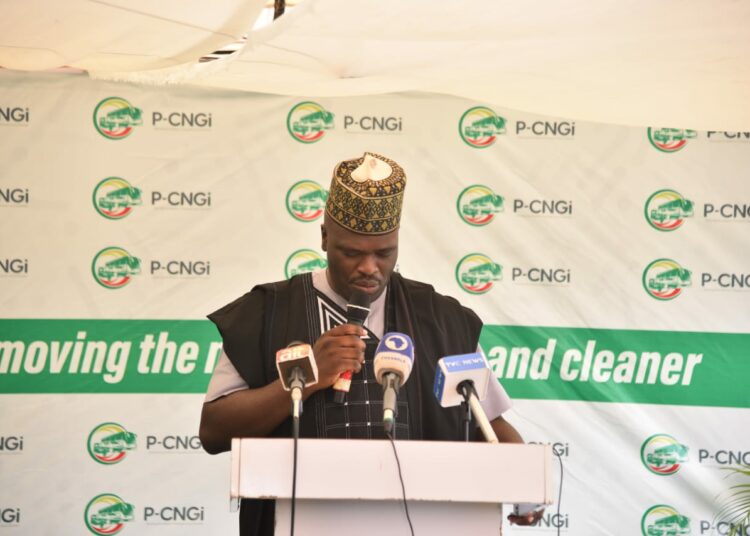In the midst of despair, there is a beam of hope once again as Nigeria goes on green with the launch and distribution of Compressed Natural Gas (CNG)-powered buses nationwide from this week, to ease the transportation challenges brought about by subsidy removal.
This is not only a dream come true but a fulfillment of an agreement resulting from the signing of the Memorandum of Understanding (MoU) by the federal government with the organized Labour on October 15, 2023.
Recall that the federal government had agreed to vote N100 billion for the provision of high capacity CNG buses for mass transit in Nigeria as part of the deal to ameliorate the pains of fuel subsidy removal. Besides, Provisions have been made for initial 55,000 CNG conversion kits to kick start an auto gas conversion programme, whilst work is ongoing on state-of-the-art CNG stations nationwide. Already, the roll out programme commenced in Lagos a few weeks ago and so far seven CNG conversion centers have been established in the country.
More than 1,000 of such centers will be opened nationwide in the next few years, with 55,000 conversions planned under the palliative programme that has kicked off, designed to reduce the cost of transportation, especially mass transit for poor Nigerians while creating over 2,000 jobs, converting vehicles from PMS to CNG Bi-fuel that runs cheaper, cleaner and better.
What this means is that, in a few days to come, Nigerians shall begin to see CNG powered vehicles on the roads.
This brought to bear the promises made by the President, Asiwaju Bola Ahmed Tinubu on October 1, 2023. In his broadcast to the nation, Tinubu declared deployment of CNG buses nationwide with a target of one million on the roads by 2027.
According to the Programme Director of the Presidential CNG Initiative, Michael Oluwagbemi, conversion to CNG buses holds importance for Nigerians and the global shift towards responsible energy selections. This, he said, extends a hand to a greener, more sustainable and affordable future.
“We are not just changing how we fuel our vehicles; we are changing lives, one job at a time,” he echoed.
CNG-powered mass transit buses would help Nigerians save two-thirds of transportation cost, and also promote the use of CNG as an alternative to petrol. This in return will cut down the cost of transportation across the country.
The Special Assistant to the President on Special Duties and Domestic Affairs, Toyin Subaru, puts it succinctly: “We are going to develop an app that will enable you to locate where a CNG station is located. We should be able to buy gas for our cars at N230 per kg as against the cost of petrol which is N680 per litre. This should help every Nigerian save about two-thirds of their transport cost.”
“Our goal in the presidential CNG initiative, as stated by the President in his October 1 speech is to make 55,000 conversion kits immediately available to the Nigerian public so that we can begin to jumpstart the CNG revolution. The palliative programme as described by the President will last until March 31, 2024. So, technically speaking, we are expected to roll out 55,000 within that time frame,” he stated.
In a few days too, the fleet of CNG powered buses promised by Depot and Petroleum Products Marketers Association of Nigeria (DAPPMAN) will arrive. The buses which were assembled locally, to reduce pressure on forex, will also provide a lot more jobs for the teaming populace. Sources close to the Association hinted that the CNG powered buses, already delivered to Abuja, may be commissioned by the President any moment from now.
Analysts have urged top players in the organised private sector to emulate the DAPPMAN example in strongly supporting the federal government’s clear determination and commitment to reduce the exasperating effect of subsidy withdrawal on the people.
They are of the view that Nigerians may begin to see, even in a short time, the price of CNG crashing to N230 per kg and consequently, crash transportation cost.
This, however, gives credence to the fact that the government is not left alone in cushioning the effects of fuel subsidy removal. This will lead to less pressure on PMS or Petrol and brings down the price locally.
The good news is that the federal government has not stopped at that. The $10 billion foreign exchange pumped into the money market has started yielding some impact on the economy as the Naira is gradually regaining its strength against the dollar which exchanged at N900 to a dollar on Monday. This was against N1,250 to a dollar in the previous week.
This invariably will encourage the oil marketers to return to the business as they have access to foreign exchange which had become an albatross to stable supply of fuel into the country in recent times.
It is also anticipated that with access to foreign exchange, a level playing field will be created in the industry while also encouraging a competitive market as more players enter the market. This will in return create more employment opportunities for the youths in the country.
* Al-Mustapha wrote in from Abuja.
We’ve got the edge. Get real-time reports, breaking scoops, and exclusive angles delivered straight to your phone. Don’t settle for stale news. Join LEADERSHIP NEWS on WhatsApp for 24/7 updates →
Join Our WhatsApp Channel









